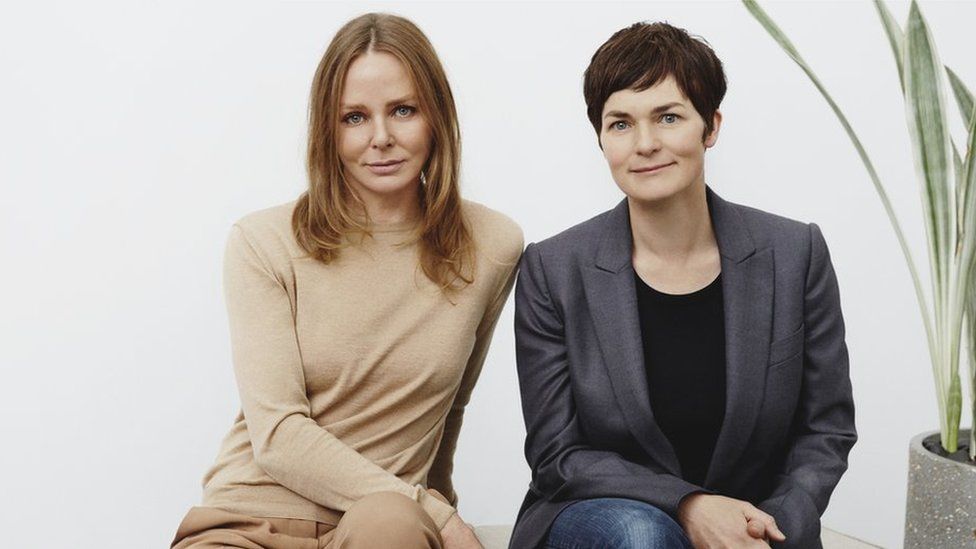Stella McCartney and Ellen MacArthur call for fashion sustainability
- Published
- comments

Stella McCartney is calling for radical changes to the "incredibly wasteful" fashion industry.
The designer is backing a report by the Ellen MacArthur Foundation which claims half of High Street fashion is disposed of within a year.
It also says the amount of clothing bought has doubled in 15 years, but the number of times an item is worn has fallen by 20%.
The report is backed by industry giants including H&M and Nike.
"Today's textile industry is built on an outdated linear, take-make-dispose model and is hugely wasteful and polluting," said Dame Ellen MacArthur, a round-the-world sailor and environmental campaigner.
The report by her foundation says that 50% of the clothes sent for landfill in the UK could be recycled.
Other environmental effects include the depositing in the ocean of half a million tonnes of tiny synthetic fibres, which cannot be cleaned up.
As a result, the foundation says that we could end up eating our own clothes as they re-enter the food chain.
Paying more?
Stella McCartney said: "What really excites me about [the report] is that it provides solutions to an industry that is incredibly wasteful and harmful to the environment. "
The report has a list of suggestions as to how to change the way clothing is produced to make it more sustainable:
- Phase out substances of concern and create safer materials
- Transform the way clothes are designed, sold and used to break free from their increasingly disposable nature
- Radically improve recycling by transforming clothing design, collection and reprocessing
- Make effective use of resources and move to renewable inputs
The report taps into a growing move among consumers towards more sustainable living.
In a recent survey by consultants Kantar Futures, 80% of respondents said they would pay more for products that lasted longer.
"Consumers are placing greater importance on the long-term benefits of a product, rather than cost-saving options that are seemingly more disposable," said J Walker Smith from Kantar Futures.
But market research firm Mintel said good intentions did not always result in a change in behaviour.
Its research suggests that 80% of women aged 16-24 were mainly looking for low prices.
- Published27 November 2017
- Published21 November 2017